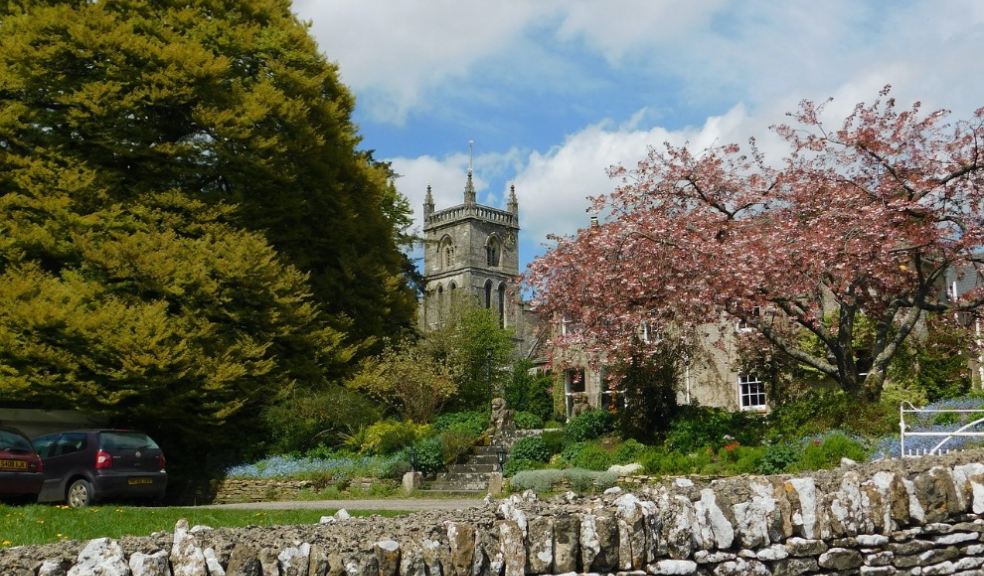
Churches urged to take steps to prevent arson attacks
Ecclesiastical Insurance is urging churches to take steps to deter arsonists over the summer months.
Already this year six churches have been victims of arson, including Bolton Parish Church, St Margaret’s Church in Ilkley and St Chad's Church in Coventry, and the specialist insurer is warning of a potential spike in attacks over the summer holidays.
Ecclesiastical’s claims data shows that on average 28 churches a year are seriously damaged by arsonists, causing millions of pounds worth of damage to historic buildings.
While thankfully a rare occurrence, the impact of arson on churches and the wider community can be substantial as recent significant fires have shown.
In 2015 All Saints Church in Fleet, Hampshire was devastated by an arson attack which caused £4.5m in damage. Following a seven-year restoration and modernisation programme to bring the church into the 21st Century the church celebrated the completion of the works earlier this year.
Specialist insurer Ecclesiastical was formed over 135 years ago to protect Anglican churches and church buildings against the risk of fire. The Gloucester-based company’s risk management experts produce fire prevention advice, including arson prevention guidance, specifically designed to help protect churches.
Jo Whyman, risk management director at Ecclesiastical Insurance, said: “Our data shows that arson attacks on churches, while thankfully rare, do still happen and particularly during the summer months. The impact of these attacks can be devastating. These senseless acts by individuals not only destroy bricks and mortar, but often priceless artefacts that have historical significance to our nation.
“Churches are legally required to carry out a fire risk assessment and in doing so they’ll be able to understand the risk of fire – including the risk of an arson attack. It is really important that steps are taken to prevent fires and by following our guidance you can help to reduce the risk of arson at your property. The good news is, many of the recommended measures don’t require capital investment but simple precautionary steps which could make all the difference.
“Our Risk Management team are on hand to assist our customers and bespoke guidance and support is available through our Risk Advice Line as well as general guidance available on our website.”
To help manage the risk of an arson attack and help to protect the country’s cherished historic churches, Ecclesiastical’s risk experts have issued advice to churches.
These include:
- Keep your church secure: At night lock your church doors, windows, and any external gates. Installing security lights and keeping the exterior well-lit can deter criminals. Also, consider installing fire alarms, intruder alarms and CCTV, all remotely monitored by an alarm-receiving centre that can alert the church if there is an incident.
- Report suspicious activity and encourage use of church buildings: Use the building as much as possible for church and community activities. Regularly occupied and used buildings may be less vulnerable to attacks.
- Practice good housekeeping: Keep internal doors shut and locked when not in use, this can slow the spread of fire through a building. Safely store items that could be used to start fires inside the church, for example portable heaters and matches, and move bins away from the outside of the building to help avoid the spread of any fire from bins to church buildings. Take particular care when building or maintenance projects are being undertaken, ensuring building materials and waste are stored safely, securely and well away from the building.
- Carry out regular external inspections of your church buildings and grounds: Regularly check your buildings and report any criminal damage to the police and your insurers as soon as possible. Cut back vegetation on a regular basis so the building can be seen by people passing who may spot suspicious activity.
- Repair any criminal damage to the church building immediately: A damaged building is at risk of further attacks, including arson. Ensure any graffiti or other signs of anti-social behaviour are removed quickly. This may attract further attacks if left.
- Be prepared for fire: Keep up-to-date fire risk assessments for your premises. Consider ways in which deliberate fires could be started and how you can prevent or reduce the risk.
- Check your fire extinguishers: The fire risk assessment for the church will have identified what portable fire extinguishers are required to meet fire safety obligations. Ensure these have been regularly serviced and are readily accessible in the event of a fire.
For more advice on keeping churches safe, visit www.ecclesiastical.com.












